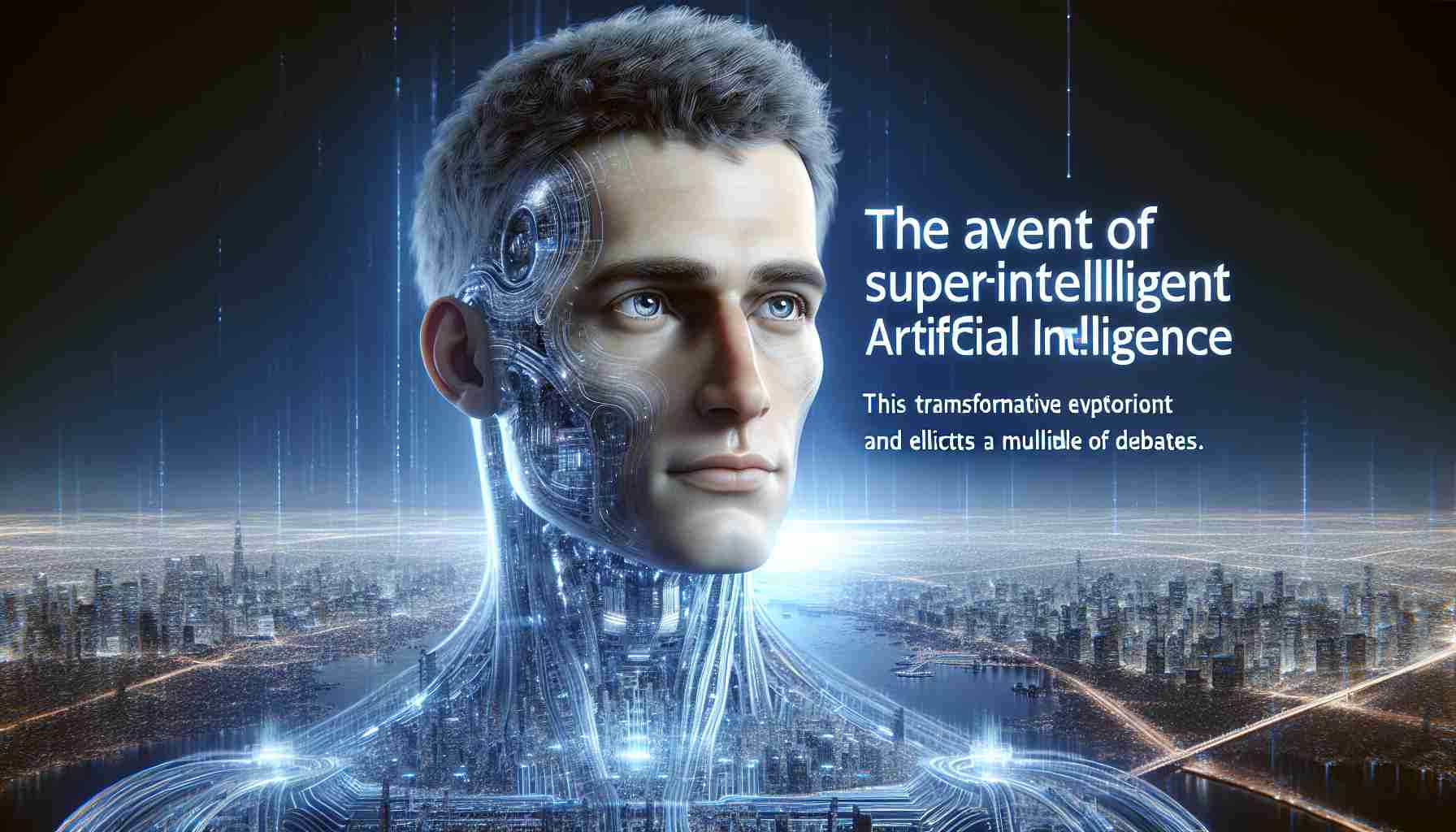Summary: Elon Musk has recently made the bold assertion that artificial intelligence (AI) may surpass the most intelligent human beings in terms of cognitive ability by next year or 2026 at the latest. This statement has sparked a wide-ranging discussion among experts about the possible timelines, ethical considerations, and implications for society and the future of human-AI interactions.
Elon Musk’s recent pronouncement that advanced AI could trump human intelligence within a few years has ignited a fiery discourse on the trajectory of technological development and the essence of intelligence. Thought leaders in the field are weighing Musk’s forecasts against the reality of AI progress and its implications for humanity.
AI researcher Yigit Ihlamur recognizes that AI outperforms humans in specific domains and foresees a broader intellectual eclipse. Although AI’s prowess is currently limited to narrow applications, its capacities are expanding rapidly, bolstered by technological advancements and investment.
Musk pointed out current hindrances like chip shortages and forthcoming challenges such as adequate electricity supplies for burgeoning AI systems. By his assessment, the collective capability of AI could surpass the sum of human cognition within five years.
While some echo Musk’s optimism about AI, envisaging a future where AI enhances the efficiency and accessibility of services, others tread cautiously. Abdullah Ahmed warns of the potential for AI to amplify misinformation and perform harmful actions, referencing thought experiments that depict a lack of ethical restraint within superintelligent AI systems.
Meanwhile, Flavio Villanustre asserts that a truly intelligent machine, equipped with self-awareness and the ability to understand the world profoundly, remains a distant vision. He suggests that Musk’s prediction may be overly optimistic, arguing that such a breakthrough is unlikely within the next decade. Consequently, while the dawn of superintelligent AI appears on the horizon, experts remain divided on when it will arrive and its impact on our world.
Artificial Intelligence (AI) is not only a prominent topic in science fiction and academic discourse, but it has also proven to be a pivotal industry in shaping the future of technology, business, and how humans interact with machines. With leaders like Elon Musk contributing to the dialogue and postulating on the future of AI, the conversation extends beyond mere speculation and into significant economic forecasts and social implications.
Industry Overview
The AI industry encompasses various sectors including healthcare, automotive, finance, and more, with applications ranging from data analysis and automation to driverless cars and personalized medicine. Companies are investing heavily in AI to gain a competitive edge, increase productivity, and provide innovative solutions to complex problems.
Market Forecasts
The market for AI is booming, with forecasts projecting substantial growth. According to Grand View Research, the global AI market size was valued at USD 93.5 billion in 2021 and is expected to expand at a compound annual growth rate (CAGR) of 38.1% from 2022 to 2030. Rapid advancements in machine learning and deep learning technologies are fueling this growth.
Issues Related to Industry
Despite this bright economic outlook, there are pressing concerns within the AI industry. One major issue is the ethical use of AI, including privacy concerns, bias in AI algorithms, and the potential for mass unemployment due to automation. Further, regulatory frameworks need to keep pace with AI developments to ensure that new technologies are used responsibly and safely.
The possibility proposed by Elon Musk that AI could outpace human intelligence raises additional ethical questions. The misuse of highly advanced AI technologies poses risks, such as the creation of autonomous weapons or the manipulation of information on a massive scale, potentially leading to widespread disinformation campaigns.
On the flip side, the advancement of AI presents promising opportunities for solving some of the world’s most pressing issues, such as climate change, disease, and global inequality, if harnessed responsibly. Musk himself is involved in ventures such as Neuralink, exploring the interface between human brains and computers, which demonstrates potential symbiotic relationships between humans and AI.
Embedding AI into the power grid to optimize energy consumption is yet another area that beckons exploration, especially in light of Musk’s concern about the adequate electricity supply for future AI systems.
For those interested in exploring the broader implications of the AI industry further, several reputable organizations offer comprehensive resources and reports:
– Grand View Research for market analysis.
– AI Global for ethical practices in AI.
– Neuralink for advancements in AI and brain-machine interfaces.
– OpenAI for research in AI capabilities and policies.
Expert Insights
Experts in the field offer divergent views on these advancements. While some align with Musk’s optimistic timeline, others, like Flavio Villanustre, suggest that such prognostications may be premature. The debate opens up broader conversations about the benchmarks for AI intelligence, the philosophical question of consciousness in machines, and the proper governance of AI deployment.
Artificial Intelligence is thus not merely progressing; it is at the heart of a complex conversation spanning technological capabilities, market potential, ethical considerations, and global policy, all of which demand informed and careful scrutiny as we stand on the brink of what could be the next great technological leap forward.

